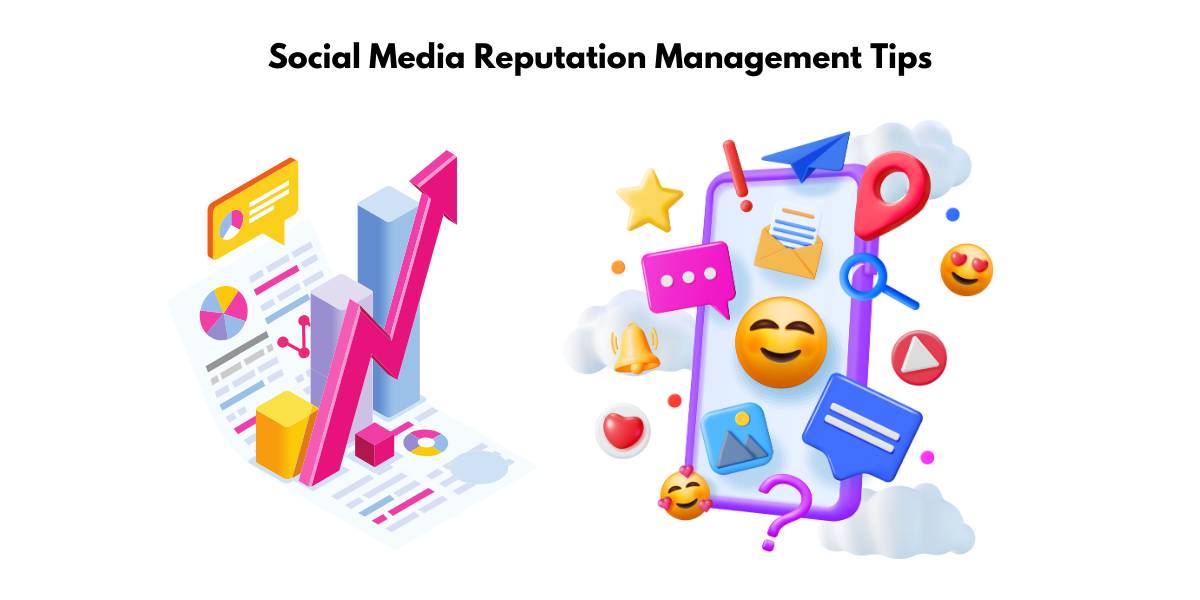Understanding Social Media Reputation Management
The Importance of a Positive Online Presence
In today’s digital age, a positive online presence is crucial for businesses to thrive. Social media platforms shape how your brand is perceived. A well-maintained online reputation fosters trust, attracts new customers, and retains existing ones. The way people perceive your brand online directly impacts your business success, affecting everything from customer loyalty to overall brand equity. Thus, nurturing a positive online image is an indispensable part of business strategy.
Key Components of Reputation Management
Reputation management in social media involves several key components that work together to present your brand favorably. These include monitoring social media channels to track brand mentions and sentiment, managing public perception through targeted content, and engaging with the audience constructively. Additionally, maintaining consistent brand messaging across all platforms is essential, alongside swift and effective handling of feedback—both positive and negative. By integrating these components, businesses can ensure a cohesive and positive brand image online.

Building a Solid Foundation
Establishing Your Brand’s Voice and Narrative
Establishing a distinct brand voice and narrative is crucial for fostering a strong connection with your audience. Your brand voice should reflect your company values and resonate with your target market, serving as the foundation for all communications. Crafting a compelling narrative involves sharing authentic and relatable stories that highlight what sets your brand apart. This not only humanizes your brand but also encourages customer loyalty by making your business more relatable and trustworthy. A well-defined voice and narrative will consistently deliver your message across different social media platforms.
Setting Clear Goals and Objectives
Setting clear goals and objectives is essential for guiding your social media reputation management efforts. Start by identifying what you want to achieve, such as increased brand awareness, improved customer engagement, or enhanced online reviews. Specific, measurable, achievable, relevant, and time-bound (SMART) goals help in creating focused and actionable plans. For example, a goal might be to increase positive brand mentions by 20% over the next quarter. Having well-defined objectives offers direction and allows you to measure progress, ensuring that your social media strategies align with overall business goals.

Tools for Effective Monitoring
Popular Social Media Listening Tools
Social media listening tools are indispensable for tracking conversations about your brand and gaining insights from online interactions. Popular tools like Hootsuite and Sprout Social offer comprehensive features such as monitoring brand mentions, performing sentiment analysis, and delivering real-time updates. Brandwatch is ideal for advanced data analytics, while Buffer excels in content scheduling coupled with social listening capabilities. These tools provide the necessary functionalities to manage multiple platforms, allowing businesses to stay informed and respond to customer feedback swiftly and effectively.
How to Track Mentions Across Platforms
Tracking mentions across platforms is essential for effective social media management. Begin by selecting a robust social listening tool like Mention or BrandMentions, which aggregates data from various online sources. Set up specific keywords related to your brand, industry, and competitors to ensure comprehensive coverage. Customize alerts for real-time notifications whenever your brand is mentioned. Regularly review the gathered data and analyze sentiment to understand how your brand is perceived. By following these steps, businesses can maintain an informed overview of their online presence, facilitating timely and targeted engagement.

Engaging with Your Audience
Responding to Feedback and Reviews
Responding to feedback and reviews is a vital component of engaging with customers and maintaining a positive brand image. Start by acknowledging every piece of feedback, whether positive or negative, to show customers that their opinions matter. For positive reviews, express gratitude and highlight specific praises to reinforce your brand’s strengths. When addressing negative feedback, remain professional and empathetic, offering solutions or further assistance to resolve any issues. Timely and personalized responses can convert a negative experience into a positive one and foster long-term customer loyalty.
Strategies for Proactive Engagement
Proactive engagement involves actively reaching out to your audience to foster a connection and build community. Initiate conversations by posing questions, conducting polls, or hosting live Q&A sessions to encourage interaction. Share user-generated content and celebrate customer successes to make your audience feel valued. Collaborate with influencers and industry leaders to broaden your reach and enhance credibility. By implementing these strategies, businesses can create an engaging and vibrant online presence, encouraging organic growth and strengthening brand loyalty.
Crisis Management Strategies
Identifying Early Warning Signs
Identifying early warning signs of a potential reputational crisis is crucial for effective crisis management. Regularly monitor social media channels for unusual spikes in negative mentions or comments. Pay attention to recurring complaints or issues that could escalate if not addressed. Set up alerts for specific keywords associated with negative sentiment around your brand or industry. Early detection allows businesses to address concerns promptly, potentially defusing situations before they develop into full-blown crises. This proactive approach helps maintain a positive brand image and customer trust.
Developing a Crisis Response Plan
Developing a crisis response plan ensures that your business is prepared to handle unforeseen negative events effectively. Start by establishing a crisis management team responsible for decision-making and communication. Clearly define roles and responsibilities to streamline responses. Create a communication strategy, including pre-drafted messages for various scenarios, to ensure timely and consistent messaging across platforms. Regularly train your team and conduct simulations to refine your approach. Having a robust crisis response plan minimizes potential damage to your brand’s reputation and expedites recovery once the crisis is resolved.

Leveraging Customer Reviews
Encouraging Positive Reviews
Encouraging positive reviews can significantly enhance your social media reputation. Actively ask satisfied customers to share their experiences on popular review platforms relevant to your industry. Provide easy access to review links through follow-up emails or on receipts. Incentivize feedback by offering discounts or loyalty program points for completed reviews. Showcase a selection of positive reviews on your website and social media channels to highlight customer satisfaction. Encouraging positive reviews not only helps build credibility but also attracts new customers by providing social proof of your brand’s quality and reliability.
Managing Negative Feedback Effectively
Effectively managing negative feedback requires a thoughtful and strategic approach to protect your brand’s reputation. Start by promptly acknowledging the feedback, demonstrating that you take customer concerns seriously. Respond with empathy and professionalism, offering a sincere apology if necessary. Address the specific issue raised and propose a solution or further assistance to resolve it. Follow up privately if the situation demands more detailed attention. Use negative feedback as an opportunity for improvement by analyzing patterns and implementing changes to prevent future issues. This approach can help transform a potential setback into a positive outcome.
Measuring Success
Analyzing Key Performance Indicators
Analyzing key performance indicators (KPIs) is essential for evaluating the success of your social media reputation management efforts. Focus on metrics such as the volume of positive versus negative mentions, audience engagement rates, and review ratings across platforms. Monitor changes in brand sentiment and track the growth of your online community. Evaluate response times and resolution rates for customer inquiries or complaints. By keeping a close eye on these KPIs, businesses can identify areas of strength and opportunities for improvement, ensuring that their social media strategies are effectively enhancing their reputation.
Adjusting Strategies Based on Insights
Adjusting strategies based on insights from data analysis is crucial for the continual improvement of your social media reputation management. Start by identifying patterns or trends from your KPIs and feedback that suggest a need for change. Modify your content and engagement tactics to better align with audience preferences and expectations. Address recurring issues highlighted in negative feedback and implement solutions to prevent them. Frequently reassess your goals and adjust them as your business grows or market conditions evolve. This dynamic approach ensures that your social media strategies remain effective and responsive to the ever-changing digital landscape.

FAQs
What is the role of social listening in reputation management?
Social listening plays a pivotal role in reputation management by monitoring and analyzing online conversations about your brand. It helps identify trends, sentiments, and insights into customer perceptions. With social listening, businesses can swiftly address concerns, engage with their audience more effectively, and make informed strategic decisions to enhance their online reputation.
How can I handle negative comments online?
Handling negative comments online requires a calm and strategic approach. Acknowledge the concern promptly and express empathy, showing that you value the feedback. Offer a constructive response by addressing the issue and providing a solution. Avoid defensive behavior and maintain a professional tone. Following up privately can help resolve more complex matters and demonstrate your commitment to customer satisfaction.
Are there specific tools for small businesses to manage their online reputation?
Yes, there are specific tools designed for small businesses to efficiently manage their online reputation. Tools like Weave simplify review collection and customer communication, while Reputation.com provides comprehensive reputation management solutions. Birdeye offers review monitoring and competitive analysis, and Podium enables streamlined customer interaction and feedback collection, all catering to the needs of small businesses. These tools help small businesses maintain a positive online presence with minimal effort and resources.


